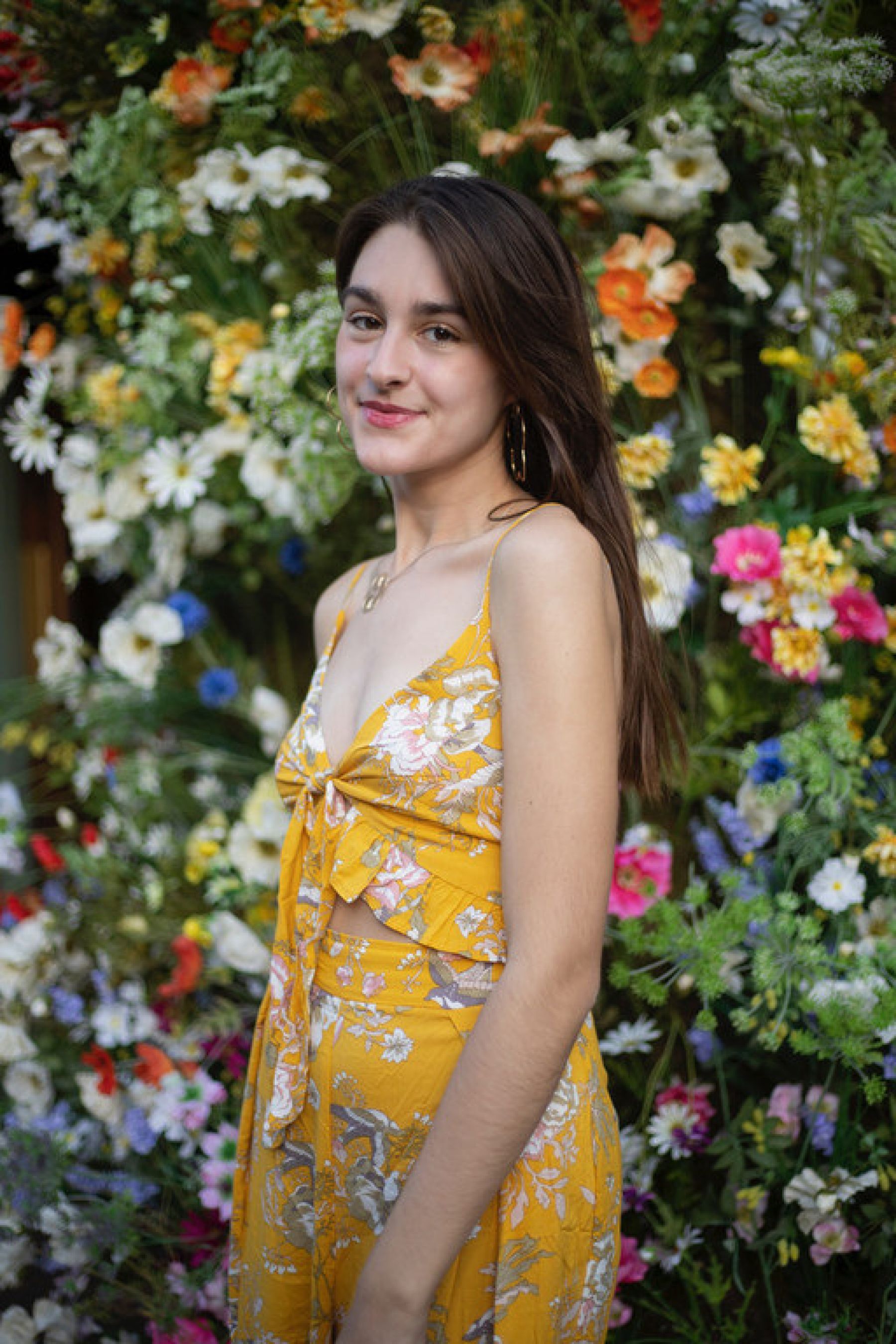Scholar builds thesis on inclusivity in advertising and empathetic storytelling

When it came time to choose the topic for her honors thesis, Penn State student Jordan Pietrafitta knew exactly where she wanted her research to go — exploring inclusivity and diversity in advertising, and how to develop her own campaign that upholds both ideals.
Pietrafitta said her interest in advertising and its avenues of representation were sparked in 2014 by the "Aerie Real" campaign by clothing company American Eagle's sub-brand Aerie.
Pietrafitta said she loved the way there were all sorts of women represented in the ads and photoshoots — curvy, petite, tall, short, brown, white, black, abled or not — and not a single one was retouched.
“It’s only fair that everyone be portrayed by companies the best way they possibly can,” said Pietrafitta, a senior majoring in advertising and public relations and English and a Schreyer Honors Scholar who graduated in May. “Before the 1970s, advertising was mostly geared for white men, and the premise for the ads was mostly sexist, racist, or homophobic, and as a woman, I want to work every day to make sure we never go back to ads that don’t have a voice for every person that looks at them.”
The Schreyer Scholar’s research has led her to assess advertising campaigns by companies like Girlfriend Collective —which aim to be diverse and inclusive but also sustainable — and others which could do much better at using diverse models, she found.
Girlfriend Collective was one company that stood out to Pietrafitta, because, she said, it explored ways to make new clothing out of plastic bottles while featuring models of different sizes, races, and socioeconomic backgrounds. The models were not sexualized in their poses and were not limited to showcase one gender.
Pietrafitta found herself inspired, just as she was with the Aerie Real campaign, especially because of her background.
“I have systemic lupus, something that is considered a disability in university, so when I see companies like Aerie use girls in wheelchairs in their ads, or girls with diabetes patches, that’s just so moving and relevant,” she said. “But not all companies are being so open, sustainable or inclusive, and that’s something I want to combat when I enter the field.”
In this way, Pietrafitta has produced a thesis centered around helping to change the fashion industry’s penchant for promoting consumption rather than representation.
But Pietrafitta took her thesis beyond just research — she developed her own sample brand called “EARTHLY,” and photographed models herself in the 3 Dots Downtown studio in State College.
She reached out to different campus communities, including Penn State's Center for Sexual and Gender Diversity and the Paul Robeson Cultural Center, to help choose her models, because, she said, “each and every one of us buys clothes — no one should be left out.”
And that’s not all. The Schreyer Scholar incorporated sustainability into her brand, featuring clothes that her friend, Michelle Mischler, a recreation, park and tourism management student, created herself.
“The thing is, there’s no one standard for beauty,” Pietrafitta said. “My research has led me to see the flaws companies have in advertising, but also how good it can be when they actually uplift and represent different people.”
This senior wants to use her honors thesis to become a proponent of inclusive advertising, as the best stories are the ones that have all the characters.
“Everyone deserves a voice,” Pietrafitta said. “Advertisers need to look beyond their target audience and towards the bigger picture. Only then do we build empathy and grow as a society.”

